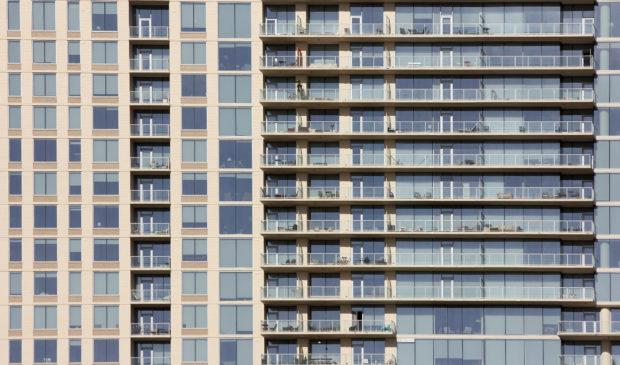Report pushes local philanthropies to help solve housing crisis
Wednesday, May 19, 2021 by
Chad Swiatecki Austin Community Foundation is encouraging local philanthropic organizations to get more involved in addressing the housing affordability crisis in Central Texas, considered the root cause of the area’s growing homeless population.
A recently released report, “Housing Affordability in Central Texas,” looks at the data surrounding affordability and offers 13 steps that foundations and other well-endowed charitable organizations can take to help preserve or create housing options.
The recommendations, divided into three categories – public will, place and people – include steps like building support for data and research around housing issues, offering leadership strategies to protect housing, helping to increase the operational capacity of existing affordable housing developers, helping to fund housing conservation, and funding eviction prevention and other financial assistance.
Meagan Longley, vice president of community impact for Austin Community Foundation, said the report was created in partnership with St. David’s Foundation, National Instruments and JP Morgan Chase in an effort to start conversations with philanthropic leaders about ways they can impact affordability without directly building projects.
“Historically, foundations have been a little wary of affordable housing projects because it’s so capital intensive. You think about having a limited philanthropic budget, even if you have millions of dollars to use, housing is expensive, and foundations have chosen to use their resources more on issues tangential to the housing issue like support services or case management,” she said. “Our goal with the report was to present actionable things that foundations can do without building an apartment complex.”
Austin’s Strategic Housing Blueprint calls for building 60,000 homes priced at rates that are affordable for families earning less than 80 percent of the area’s median family income of $75,000 for a family of four. The blueprint calls for 20,000 of those homes to be affordable for households at 30 percent of MFI, 25,000 to be affordable for households at 31-60 percent of MFI, and 15,000 to be affordable for those earning 61-80 percent of MFI.
Longley said the strength of the technology sector has fueled most recent growth in Austin and brought higher incomes that are leading to rental increases if housing isn’t built fast enough to meet demand. As the report notes, nearly half of local residents spend 30 percent or more of their income on housing.
Residents displaced by rising housing costs can then cycle into the local homeless population. The issue has drawn heated debate over the past two years, beginning with City Council’s decision in 2019 to relax restrictions on camping in many public areas.
That decision was recently rolled back by a successful ballot initiative, exposing the homeless to possible misdemeanor charges and putting pressure on those looking to create supportive housing and services for the homeless as well as more affordable housing.
Longley said the seriousness of the issue will hopefully move leading charitable organizations and the philanthropic arms of large corporations to get more involved.
“I have to think the money is out there. Homelessness and affordable housing are different but same in many ways, since housing affordability is a root cause of homelessness. The attention on unhoused Austinites presents an opportunity for people to dive into a communitywide solution on an issue that has reached such a level they can’t unsee,” she said.
Joe Deshotel, a member of Austin’s Community Development Commission, said the report correctly links the issues of affordability and access to transportation, especially for residents in need of mental health and other services.
“Almost everything that we do, it doesn’t matter what you’re philanthropically involved with, you have to consider housing and transportation because it’s the foundation of anything else that we do as a city,” he said. “When you talk about homelessness and mental health services, (location) is so important because we can’t give access to these folks if we don’t know where they are and don’t have the stability that housing provides.”
Photo made available through a Creative Commons license.
The Austin Monitor’s work is made possible by donations from the community. Though our reporting covers donors from time to time, we are careful to keep business and editorial efforts separate while maintaining transparency. A complete list of donors is available here, and our code of ethics is explained here.
You're a community leader
And we’re honored you look to us for serious, in-depth news. You know a strong community needs local and dedicated watchdog reporting. We’re here for you and that won’t change. Now will you take the powerful next step and support our nonprofit news organization?











